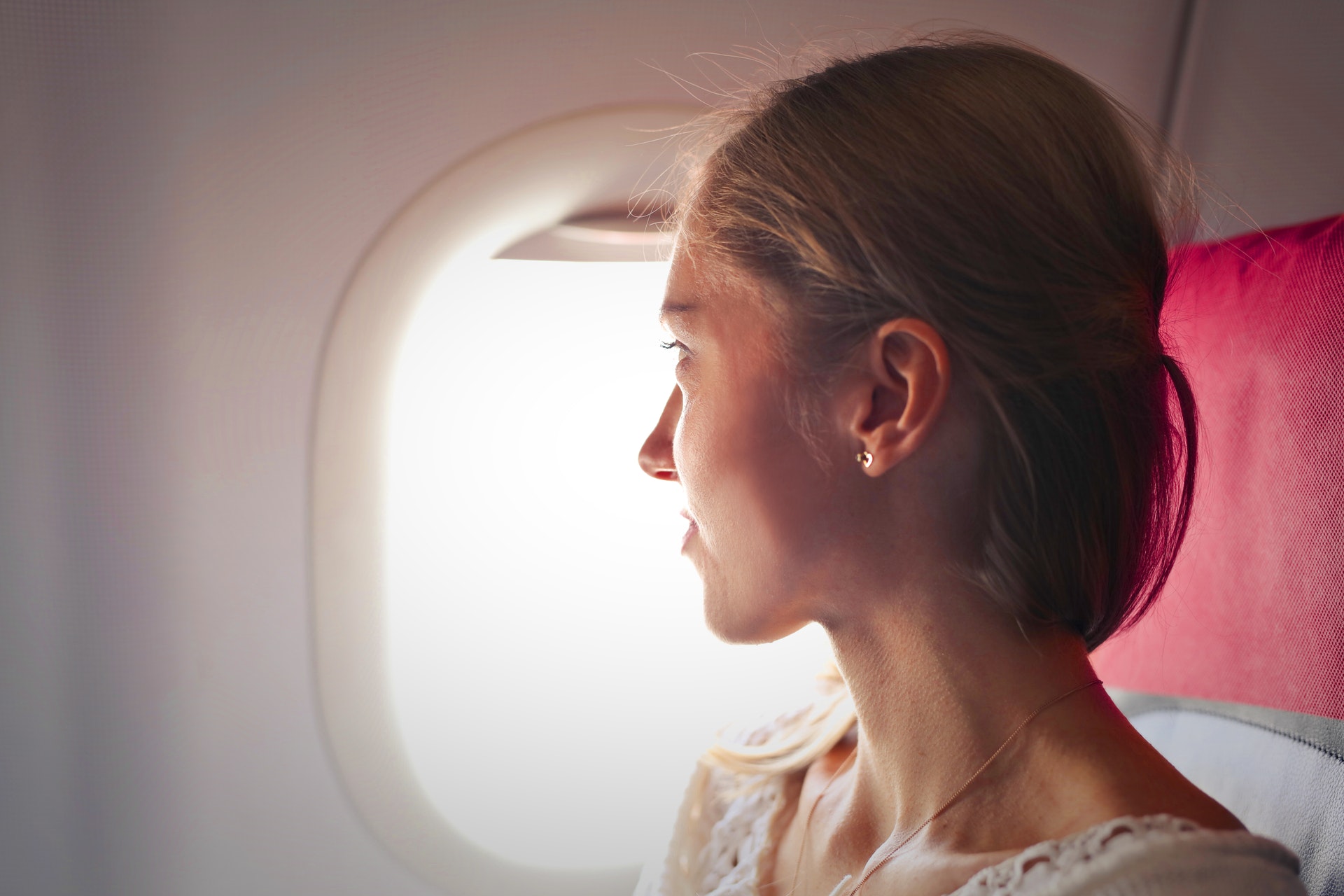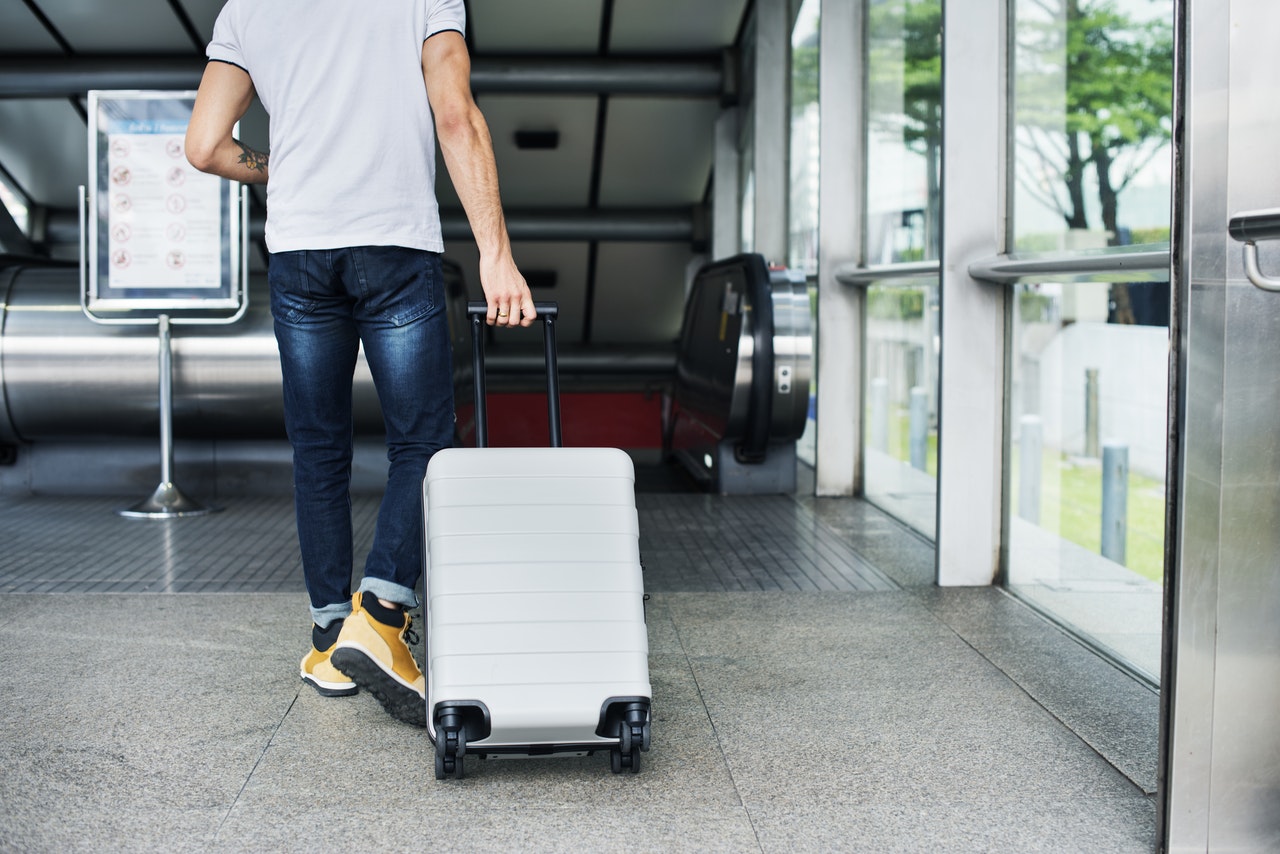How to Beat Jet Lag
Stephanie Hernandez on 16th Nov 2018
Whether you’re jumping from coast to coast, spanning oceans, or traversing continents - nothing spoils travel plans like an inconvenient bout of jet lag.
The annoying brain fog. That inevitable sluggishness. Crossing time zones disrupts our circadian rhythm, causing both physical and mental fatigue. Fortunately, years of scientific studies have left jetsetters with a handful of tips and tricks on how to beat jet lag.
From sunshine and berries to minor alarm clock tweaks, find out how you can help your body get in sync with your destination’s time zone - before you even step foot on your flight.
7 Tips on How to Beat Jet Lag

1. Tweak your schedule
When we fly west, in the same direction the earth rotates, we experience “phase delay”, meaning our day is lengthened. When we travel east, our body is faced with “phase advance”, meaning the day is shortened. While both require an adjusted schedule - the latter leaves the body in a state of catch-up, and is much more difficult to acclimate to.
Either way, we typically deal with this time change upon arrival. However, that disruption in our sleep-wake cycle is exactly what causes jet lag. It interrupts our circadian rhythm, throws off our body’s natural clock, and causes the onset of a bunch of nasty symptoms.
What can we do to help prevent some them? Get ahead of the game by shifting your schedule to match your destination’s timezone before you travel. Even if it’s just by an hour or two, going to sleep and waking up at a time that more closely aligns with the city you plan to travel to will drastically help you ease into your upcoming routine. Seasoned flyers suggest starting this 2-4 days prior to your trip, depending on how far your journey is.
Especially before a big trip east, pre-adjusting your sleep pattern will go a long way!
2. Take melatonin
Our circadian rhythm (body clock) is regulated by melatonin - a natural hormone produced by a tiny, yet powerful, pea-sized gland, called the pineal gland, found just above the middle of your brain. Melatonin production is triggered by light exposure. Levels rise after dark, peak overnight, and then fall in the morning. This regulates your sleep-wake cycle by telling your body when it's time to sleep, and when it’s time to wake up.
Melatonin supplements are a great natural remedy to help the body quickly adjust to a new time zone. It’s recommended to take melatonin for jet lag after dark on the day you travel, as well as at dusk for a few days thereafter. When flying east, it’s suggested you start taking melatonin in the evening a few days before departure, around sunset. The faster you can re-tune your body clock to a new time zone, the less jet lagged you’ll feel.
In most countries, melatonin is available over the counter. But you can always consult a doctor before using the supplement in order to be sure it’s a good fit for you.
3. Get plenty of sunshine

As mentioned above, our exposure to light has a huge impact on our sleep-wake cycle. Strategically getting sunlight - both before and during your travels - can help your body get in tune with your new environment.
If you fly east to west and arrive in the afternoon, avoid napping and instead, try and get some sun. This will help you go to bed at normal time come evening, and will ultimately help your body adjust quicker.
If you’re lucky enough to score a window seat on the plane, use it your advantage. On long hauls, allow the sunlight to shine through during the daytime hours of your destination. Do your best to nap during your destination’s night hours, and stay active reading or watching a movie during the daytime hours.
Jet Lag Rooster is a great free resource that helps you calculate when you should and shouldn’t expose yourself to light. Recommended by the Center for Disease Control, it even suggests melatonin dosage for jet lag prevention.
4. Pack lavender oil

Studies show one of the most powerful lavender essential oil uses is its ability to enhance sleep and relaxation. It acts as a mild sedative, promoting deep sleep. Bringing a small bottle of lavender oil along for your plane ride is a great, natural way to promote a nice nap. Dab some of the oil on your eye mask, pillow, or blanket to relish the benefits. Unless you plan on hitting the hay as soon as you land, getting adequate rest during a long flight is key to feeling refreshed upon arrival.
5. Stay hydrated
Drinking a ton of water won’t exactly prevent jet lag, but it will avert added fatigue due to dehydration. While the unlimited wine offered on long hauls might be tempting, keep in mind that alcohol dehydrates – especially at high altitude, and with cabin pressure. If you do choose to drink alcohol, be sure to replenish with lots of water.
There are also a lot of great jet lag prevention teas perfect for mid-flight sipping. Nourishing your body with beneficial nutrients and herbs is a great way to boost your immune system, aid digestion, and reduce the stress that often accompanies long travels.
6. Eat light and healthy

Digestion slows down quite a bit at high altitudes. Combined with dry plane air that can easily dehydrate you, flying takes a serious toll on your gastrointestinal system.
While in the air, it’s best to eat light, healthy, low-sodium, high-fiber snacks. Ideally, this means avoiding airline food. In general, the meals served on board contain a ton of salt - which can lead to dehydration and bloating. When possible, ask the flight attendant for fruit and granola bars.
You can also pack your own snacks. Berries are full of phytonutrients, antioxidants, fiber, and water. These nutrients nourish, combat inflammation and swelling often associated with long flights, and aid the digestion. Try snacking on bananas to help promote sleep. Peanut butter packets also make an excellent jet lag prevention food and are easy to toss in your purse or carry-on bag.
Last, but certainly not least, adapt your meal times to match the timezone of your final destination. You can even begin adjusting your eating schedule a few days before your flight. This will help your brain and body quickly adapt to the new time zone.
7. Limit your screen time
It’s easy to binge watch television shows and movies on a flight, but try and do so only at proper times. The blue light projected from screens tricks the body into thinking it’s daytime. This is fine if you’re trying to stay awake on a flight. But during the night hours of your final destination, it’s best to switch off all electronics and instead get some shut eye. Save the movies for the daytime hours of your future time zone, instead.
If you’re bored out of your mind and can’t sleep on a flight - try downloading some podcasts to listen to as an alternative.

While the days leading up to a trip are often hectic, setting aside some time to incorporate these tips into your preflight routine is well worth the effort. Prioritize a healthy diet, come up with a suitable sleep strategy, and be wise about your screen time. Whether you’re traveling for business or pleasure, speed up your circadian shift so that you can have happy, healthy, and productive travels.












